How Many Years In A Generation?
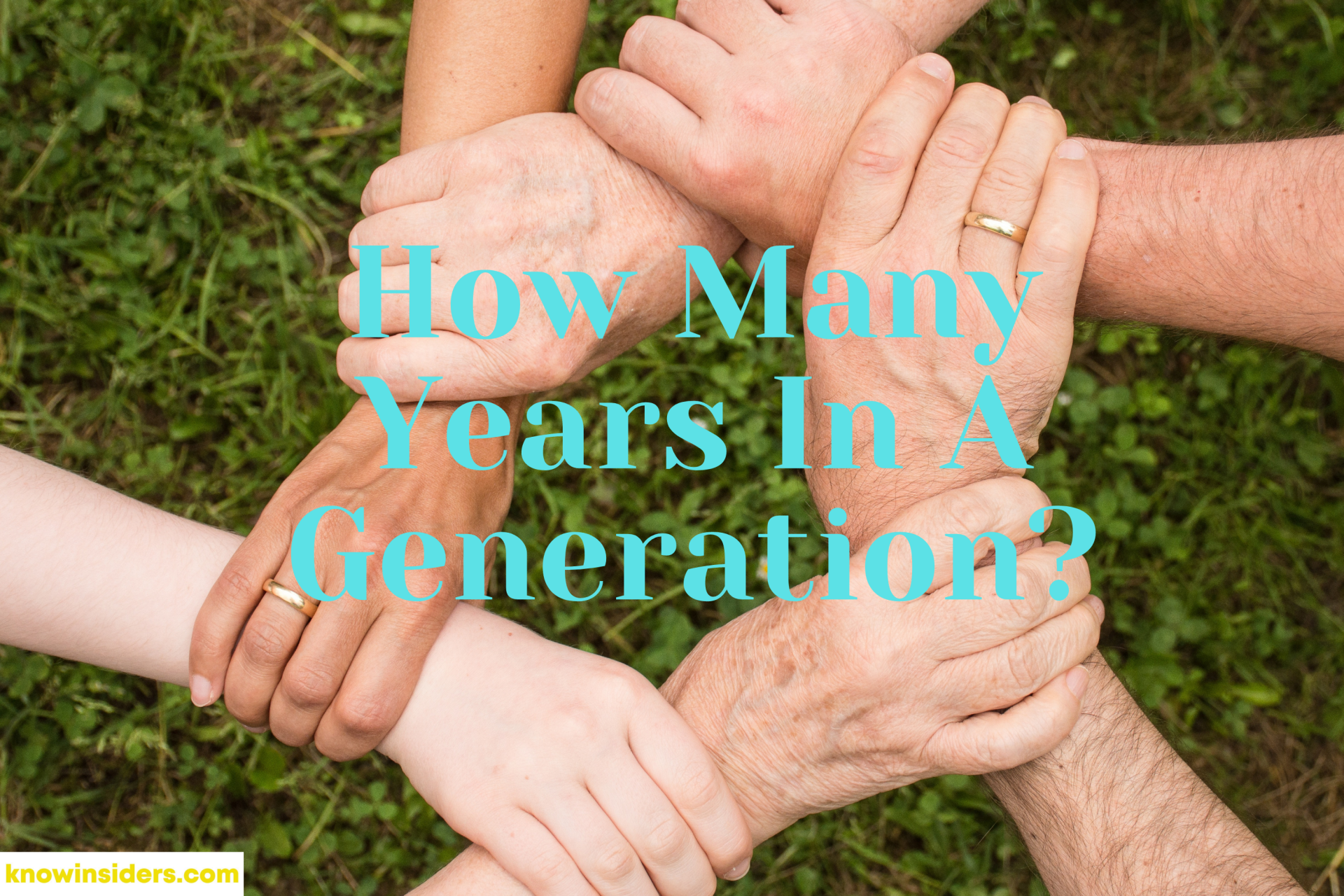 |
| How long does a generation last? Photo KnowInsiders |
What defines a generation?
A generation is a group of people born around the same time and raised around the same place. People in this “birth cohort” exhibit similar characteristics, preferences, and values over their lifetimes. At The Center for Generational Kinetics, we believe that generations are not a box; instead, they are powerful clues showing where to begin connecting with and influencing people of different ages. There are big differences between the generations and it's important to know the years when each generation begins and ends. We specialize in the relationship between geography and generations. Millennials, for example, are the most consistent generation globally. However, we still see important differences between Millennials raised in an urban environment versus those raised in a rural one or those who move to a new country.
Older Baby Boomers observed the Korean and Vietnam wars, and older members of that generation also participated in the latter.
Generation Jones had Watergate, the 1979 oil embargo, and AIDS, fostering what many see as a loss of trust in government and other institutions.
Those in Generation X are “the last Americans that know how to fold a newspaper, take a joke, and listen to a dirty story without losing their minds,” Vanity Fair magazine once wrote.
But Gen Xers also are described as the first “latchkey” kids, exposed to daycare and divorce that made them cautious and pragmatic.
During a short grace period, Xennials went to school before Columbine and found jobs before the recession.
Millennials learned about popular culture via cable television, joined the workforce at the height of the recession and delayed leaving home and marriage, giving them a “slow-start” reputation. They were old enough to understand the Sept. 11 attacks, helped elect the nation’s first black president and are the second-largest generation of voters after baby boomers
Generation Z will have more money than any previous generation — but more school debt as well. Donald Trump may be the first U.S. president they know.
Not everyone buys into the concept of generations, by the way.
A Slate magazine piece argued there was no scientific evidence to support the distinct characteristics of generations and that the concepts were arbitrary, flawed and stereotyped.
“Generations and generational differences are intriguing and inherently appealing concepts. As such, the media will keep on reporting on them, academics will publish, pundits will talk, and consultants will sell to whoever is buying,” it said.
“But the science says that, despite their popularity, generations simply aren’t a thing.”Length of a Social Generation
Generation Calculations
As you can see, calculating how long a generation lasts is not an exact science, and there’s no simple formula. If you look at the generally recognized generations, you could say there have been 6 generations in the last 100 years between 1920 and 2020: GI Generation, Silent Generation, Baby Boomers, Generation X, Millennials, and Gen Z.
| Generation | Year |
| Gen Z | 1997 – 2012 |
| Millennials | 1981 – 1996 |
| Gen X | 1965 – 1980 |
| Boomers II | 1955 – 1964 |
| Boomers I | 1946 – 1954 |
| Post War | 1928 – 1945 |
| WW II | 1922 – 1927 |
The best way to see how long a generation lasts is to look at the popular generations recognized today.
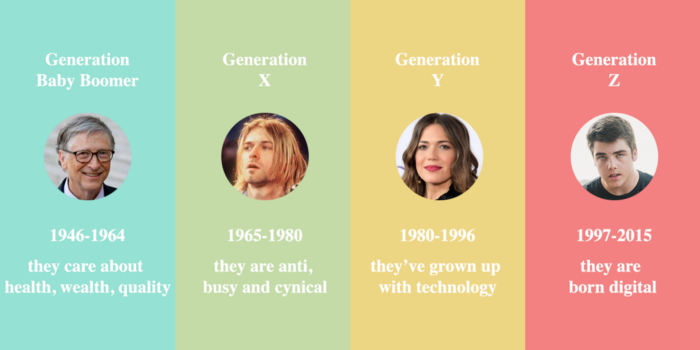 |
| Photo datadriven |
The GI Generation or The Greatest Generation
Experts generally agree the GI Generation includes all people born in 1924 or earlier. This group has also been called The Greatest Generation, a term coined by Tom Brokaw in a 1998 book describing those who lived through the Great Depression and fought in WWII.
The Silent Generation
A 1951 Time Magazine essay coined the term The Silent Generation, which includes people born from 1924-1945 or 1925-1942 depending on the source. This generation spans roughly 17 years.
Boomers I or Baby Boomers
This generational term is the only one used by the U.S. Census Bureau. They say Baby Boomers are those born between 1946 and 1964, so the generation spans 18 years.
Boomers II or Generation Jones
Some choose to break the Baby Boomer generation into two separate groups. Those who do claim Boomers I were born between 1946 and 1954 while Boomers II were born between 1955 and 1965.
Generation X or Baby Busters
Douglas Coupland first used the term Generation X in a book in 1991, but they have also been referred to as The Lost Generation. People born between 1965 and 1980 are considered Generation X, making this generation span 15 years.
Generation Y or Millennials
 |
| Photo Future of Work |
Generation Y (or Millennials) has now become the largest group in the work-place. They have grown up with media and technology. They were born between 1980 and 1996. The most famous people is Facebook co-founder Mark Zuckerberg.
More than other generations, they are looking for meaning in their work, they care about making a difference. They expected to learn new knowledge and skills, to work with positive people and company that can fulfill their dream.
They seem to trust elders more than the two previous generations did at the same age.
Generation Z or Gen Z
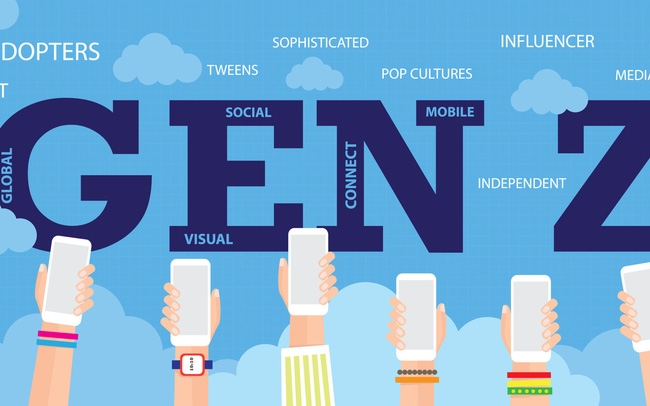 |
| Photo BizFlyCloud |
They called Digital Teens, was born between 1997 and 2017. They are more self-centered than all the generations. It is a very diverse generation with many, ever-changing, sub-culture. Gen Z are making their presence known in the workplace and organizations and leaders cannot afford to ignore them.
Their parents (Generation X) knows best how to live with them.
Generation Alpha
Australian social researcher Mark McCrindle recently coined the term Generation Alpha to describe the generation born between 2010 and 2020.
He argues that as the world advances, it makes sense to cut the generational boundary to a 15-year maximum. McCrindle also hopes this naming strategy will stick and every 15 years there will be a new generation named successively with Greek alphabet letters.
Why are Millennials getting so much attention now?
In the last two years, Millennials have become the largest generation in the U.S. workforce. Millennials are also the fastest-growing generation of customers in the marketplace, bringing the greatest lifetime value. In addition, Millennials exhibit different attitudes toward employment, sales, and marketing, which are challenging many conventional strategies and approaches. No wonder everyone’s talking about Millennials—but are they really different? How and why are they different? What can employers, marketers, politicians, educators, and parents do?
Now Millennials have something to look out for, too: the next generation. Known as Gen Z, Generation Z, iGen, or Centennials, this new group of people is making big waves in all the ways a generation possibly could—including parenting, education, employment, entrepreneurship, sales, marketing, politics, religion, and more.
**READ MORE: Top 10 Youngest Billionaires in the World 2021
What do we know about the newest generation, Gen Z (also known as Generation Z, iGen, and the Centennials)?
The end of the Millennial generation and the start of Gen Z in the United States are closely tied to September 11, 2001. That day marks the number-one generation-defining moment for Millennials. Members of Gen Z—born in 1996 and after—cannot process the significance of 9/11 and it’s always been a part of history for them. CGK is currently conducting research on this newest generation and we will be releasing interesting findings in the near future!
Technology by the numbers
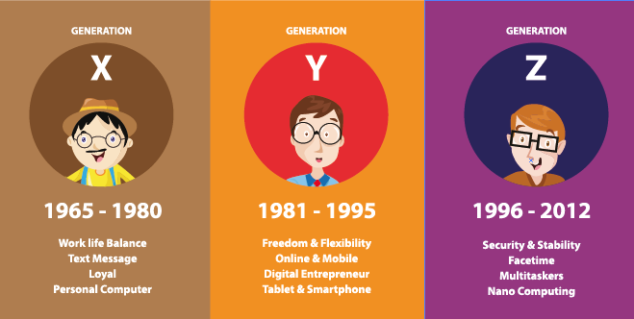 |
| Photo VnReource |
One of the biggest experiences shared by a generation is the technology it grew up with.
Boomers passed through childhood as television took hold, Generation X saw computers come onto the scene and millennials were born into the age of the Internet.
More recently, members of iGen or Generation Z are the first to grow up with smartphones, said Dr. Jean Twenge in her book iGen: Why Today’s Super-Connected Kids Are Growing Up Less Rebellious, More Tolerant, Less Happy — and Completely Unprepared for Adulthood — and What That Means for the Rest of Us.
Absorbed with social media and texting, they are said to spend less time with their friends in person, which could be making them anxious or lonely, experts like Twenge say.
| What are three key trends that shape generations? The three key trends that shape generations are parenting, technology, and economics. For example, many Baby Boomers have the parenting philosophy, “We want it to be easier for our kids than it was for us.” This philosophy, in turn, helped create and reinforce Millennials’ sense of entitlement, which is now a hotly debated topic. |
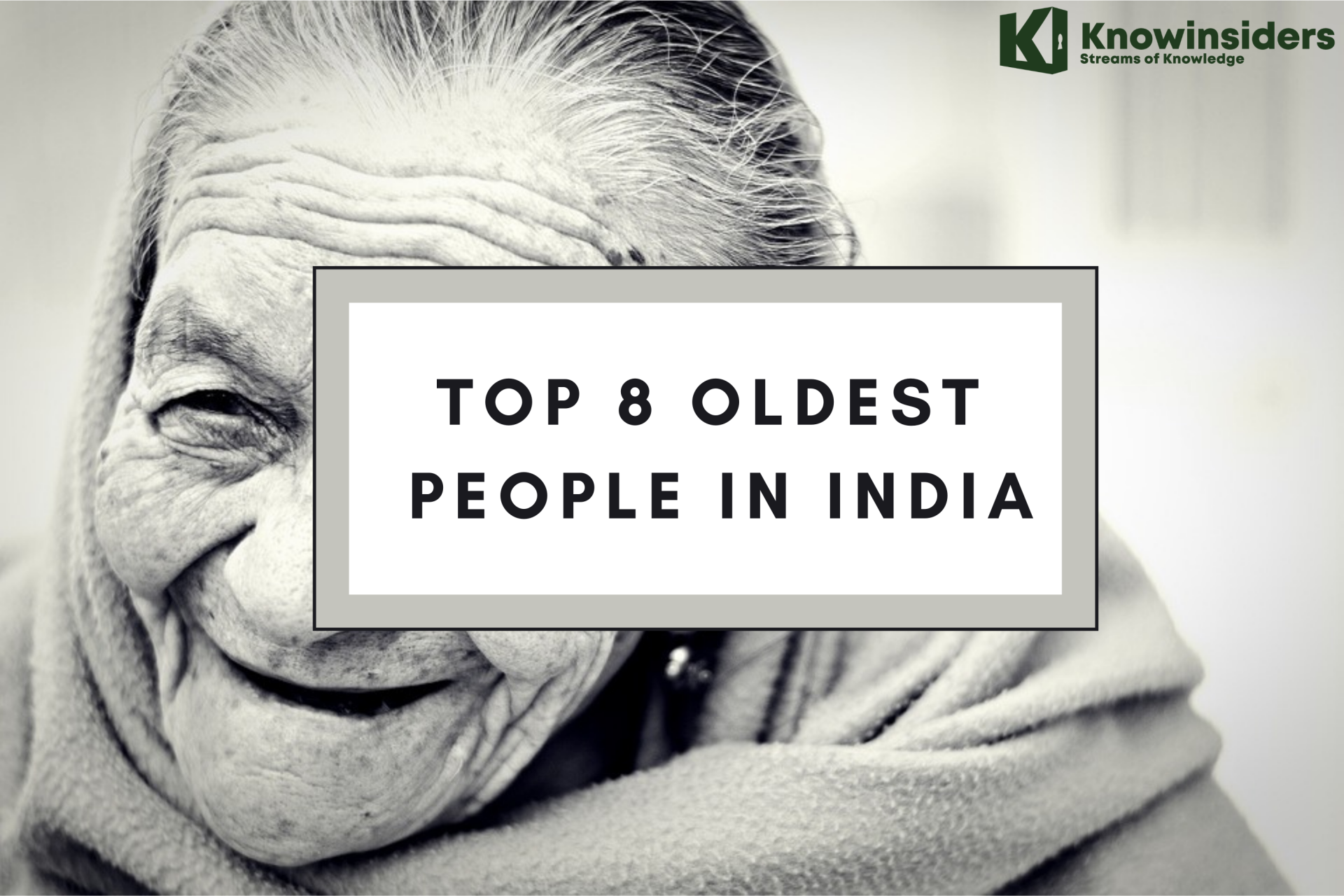 8 Oldest People In India 8 Oldest People In India |
 10 Oldest Men Ever Living in the World 10 Oldest Men Ever Living in the World |
 10 Oldest Supermodels in the World 10 Oldest Supermodels in the World |

























